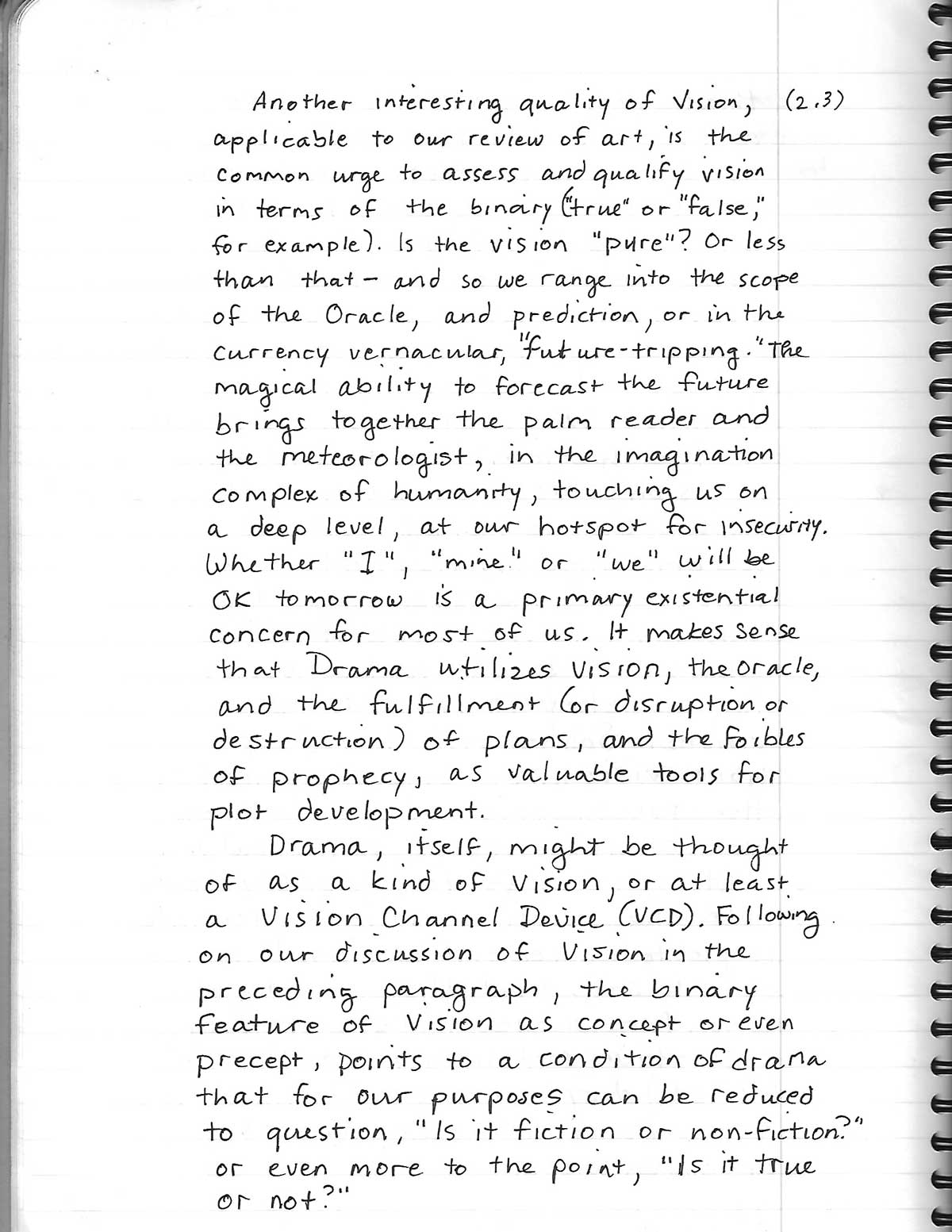[2.3]
Another interesting quality of Vision, applicable to our introductory rumination on art, is the common urge to assess and qualify vision in terms of the binary (“true” or “false,” for example). Is the vision “pure?” Or less than that – and so we range into the scope of the Oracle, and prediction, or in a current vernacular, “future-tripping.” The magical ability to forecast the future brings together the palm reader and the meteorologist, in the imagination complex of humanity, touching us on a deep level, at our hotspot for insecurity. Whether “I,” “mine” or “we” will be OK tomorrow is a primary existential concern for most of us. It makes sense the Drama utilizes vision, the Oracle, and the fulfillment (or disruption or destruction) of plans (patterned or predetermined outcomes), and the foibles of prophecy, as valuable tools for dramatic plot development.
Drama, itself, might be thought of as a kind of vision, or at least a Vision Channel Device (VCD). Following on our discussion of Vision in the preceding paragraph, the binary feature of Vision as concept or even precept points to a condition of drama that for our purposes can be reduced to the question, “Is it fiction or non-fiction?” Or even more to the point, “Is it true or not?”
